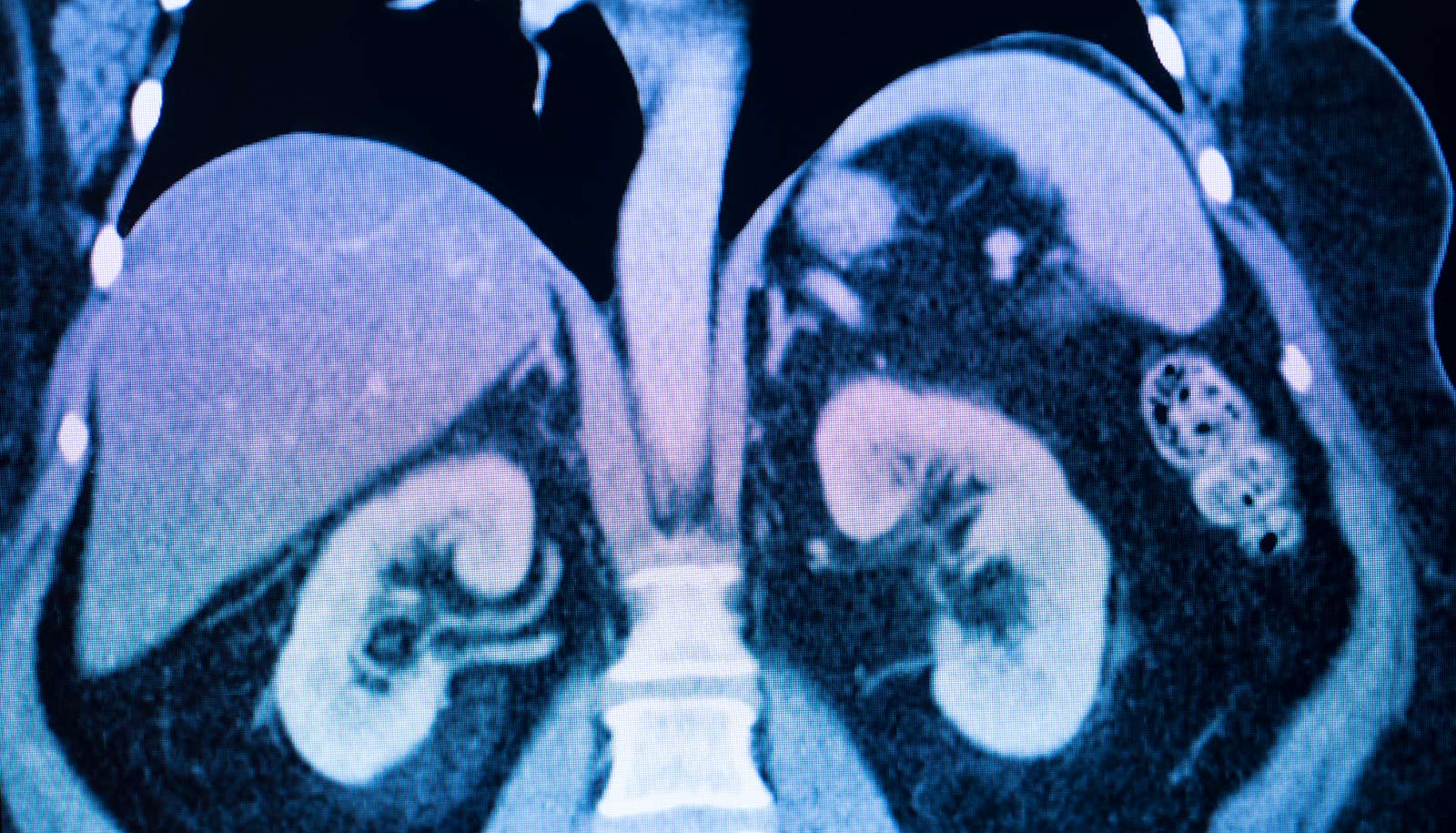A new way to detect liver cancer in its early stages uses a targeted MRI contrast agent that binds to proteins, researchers report.
A study in Science Advances describes a newly identified biomarker for detection of liver metastases. With current tests like biopsies, doctors often only detect cancer in the liver in advanced stages, which can limit treatment options and lower overall survival rates.
The discovery could have wide-ranging effects, researchers say, including more effective diagnosis and precision treatment, and less risk to patients.
“This is a game changer. It has the possibility to have many more applications, really for any type of cancer,” says Jenny Yang, a professor at Georgia State University and associate director of the Center for Diagnostics and Therapeutics. “We are already applying it to 10 different types of cancer in the lab.”
The researchers developed an agent that can target certain receptors—in this case, chemokine receptor 4 (CXCR4). In people with cancer, the receptor becomes overexpressed in common metastasis organs, such as the liver.
Researchers expect the CXCR4 targeted protein-based MRI contrast agent will overcome existing major barriers by showing even tiny instances of cancer cells on multi-color scans called precision MRI (pMRI), a new imaging methodology.
Using MRI technology, contrast agents carry the element gadolinium to enhance the images. During her previous work analyzing calcium, Yang decided to test how a metal, like gadolinium, would interact with protein. The protein wraps around the element and carries it to the site for imaging. Her team found that protein design is much more effective in targeting the signs of disease.
“Currently, it is difficult to see early stages of disease in the liver, even in invasive biopsy,” Yang says. “Diagnostic testing using this contrast agent can not only identify the presence of disease but differentiate the stages of disease with high sensitivity and accuracy. That’s the beauty of this work.”
The researchers say the findings are so promising, the US Food and Drug Administration is fast-tracking the targeted protein contrast agent in the first step toward clinical trials to gauge its efficacy in humans. “We have already met with the FDA, so we have a blueprint,” Yang says. “We hope within 18 months to two years we can conduct our first clinical trials in patients.”
The research builds on a 2019 study published in the journal Nature Communications, in which Yang’s team identified the first early detection of liver fibrosis using a collagen-targeted protein contrast agent.
“We have been using the same contrast agents for 30 years with few breakthroughs,” Yang says. “I think this is my biggest scientific contribution. And I hope there are many more to come.”
The National Cancer Institute supported the work.
Source: Georgia State University



